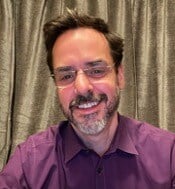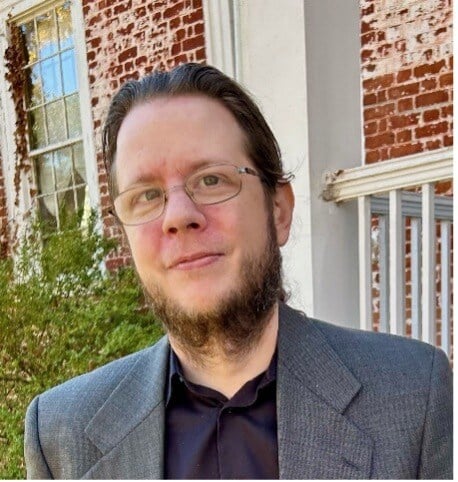
Tayo Daniels grew up in Somerset Homes, one of the roughest housing projects in Baltimore. He was the youngest of six in a single-parent household, but being the baby of the family offered him no protection against the reality of the neighborhood.
The amount of violence and drug trafficking activity that he was exposed to was staggering. Tayo says he saw his first murder when he was eight years old, and he estimates that he witnessed eight more killings growing up. “Watching all that violence really caused me trouble,” Tayo says. “That eight-year-old kid disappeared, and he never knew who he was.” All the traumatic experiences he went through were buried deep inside. It would be many years before the tools and principles of SMART Recovery offered him a chance to build a new mental environment in which to live life and to find out who he truly was.
Unsurprisingly, Tayo’s history led directly to significant PTSD and psychological trauma wounds that affected his thinking and behavior. Early on, to escape his stressful environment, he began misusing substances and engaging in compulsive behavior. He became obsessive about activities like pinball and weight training as he tried to cope with the overwhelming chaos and confusion around him. As his anger at the world grew, he began to have violent outbursts that led to legal trouble. Eventually he ended up living in a van, cut off from people, and completely disconnected from himself.
Along the way, several attempts were made at getting Tayo help for both his substance misuse and mental health concerns. He first sought help in 1996, but progress was slow, and the old patterns persisted. It was not until 2017 that he discovered SMART, and his life became focused on dealing with the past and moving into a new future.
Fortunately, somewhere deep inside, Tayo had always held onto a little bit of hope. That hope expressed itself as curiosity one Saturday morning six years ago. He was living in a recovery house, and one of his roommates was heading out to a SMART meeting. Tayo asked if he could tag along. With that single event, the door to Tayo’s recovery was thrown wide open.
Looking back, Tayo sees SMART’s overall emphasis on healthier cognitive functioning as the key to his growth. It’s one thing to know you have self-defeating thoughts and negative feelings, but another to know how to make practical changes. Tayo found the concept of locus of control particularly intriguing. He used it and the other CBT tools that he learned at SMART meetings to gain insight into his own behavior and to begin the transition to taking personal responsibility for his life and its direction. He discovered he liked having the choice to substitute positive thoughts for negative ones.
Tayo especially credits the power of mutual support for his successful recovery. He felt an immediate connection to the SMART community in Baltimore. “The group was just so engaged. I loved it!” As he learned more about the program, he decided to take the facilitator training offered at Chase Brexton Health Care. Eventually, he relocated to Marietta, Georgia for family reasons, but brought his dedication to SMART with him.
In Georgia, Tayo started a SMART meeting at a Recovery Community Organization (RCO) called The Zone, where he spread the word about the program that had been so transformative in his life. Eventually, he found himself working with men involved in the criminal justice system, helping them with the SMART-based Successful Life Skills program. It was in that setting that Tayo’s lived experience was particularly put to positive use.
He says that all the trauma and years of negative behavior made for a powerful example that others who were in similar circumstances could relate to. “It’s not what I say, but what people see in me, that attracts them to SMART Recovery. It’s the way they see me living. I found out who I truly am.”




